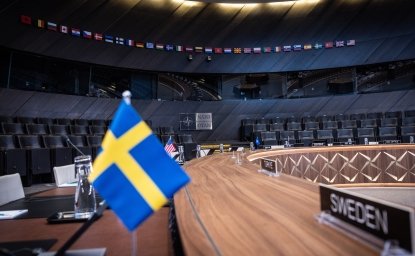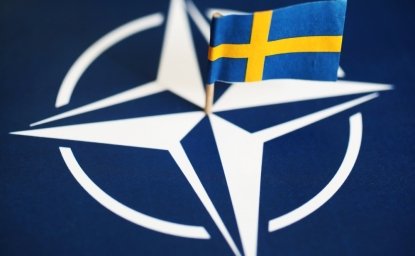In July 2024, leaders from the NATO Alliance will arrive in Washington for the 75th anniversary of the world’s most successful military alliance. For 75 years, NATO has provided security assurances; it now stretches from Anchorage to Helsinki. Approximately 950 million people are shielded by the Alliance’s Article 5 pledge: an attack on one is an attack on all. Since Russia’s invasion of Ukraine, NATO has seen a renewed sense of purpose, bolstered by two new members, Finland and Sweden; the latest expansion has confirmed and extended the alliance’s central role in European security. The last several NATO summits have seen unprecedented leaps forward in strategic thinking as a result of the new security environment in Europe; from the announcement of a new Strategic Concept–a guiding document that shapes the work of the alliance–at the Madrid Summit in 2022, to the implementation of this concept in Vilnius in 2023. The Washington Summit in 2024 is meant to celebrate not only longevity, but also the Alliance’s effectiveness. So to succeed, NATO needs to take bold steps forward on Ukraine’s membership and showcase how NATO has adapted to face contemporary challenges.
The key question hanging in the air is: will Ukraine be invited to join NATO at this summit? There is currently a dangerous disconnect between Ukraine’s expectations and the Alliance’s trepidation. For Ukrainians, they are fighting an existential war against NATO’s chief strategic threat: Russia. Why shouldn’t their country be invited to join? For many within the NATO Alliance, there is a concern about the timing of NATO membership and whether the ongoing conflict will engulf their countries. After the Vilnius summit, there was a palpable sense of disappointment among Ukrainians. Their aspirations to join the Alliance were stymied, primarily by the United States and Germany.
The Washington Summit offers a new chance for the NATO Alliance to reconsider. Inviting Ukraine to join does not mean Ukraine is in NATO tomorrow; the process can take years from invitation before a country deposits its instrument of accession. An invitation does not trigger World War III nor does it trigger Article 5. However, it means NATO will be able to work even more closely with Ukraine on the reforms needed for Ukraine to join. At a time when military and financial support has gone wobbly, NATO can give Ukraine a lifeline by simply extending an invitation and beginning the accession process. Only after extensive reforms and ratification in the legislatures of the 32 NATO Allies would Ukraine become a full member and a party to Article 5.
There is a real sense of urgency to begin Ukraine’s NATO accession – not only for Ukraine but also for the Alliance and its members. The Washington Summit must be an opportunity to make the case to the American public–and the domestic audiences of all NATO members–for NATO’s continued role as a provider of security and prosperity. NATO is the backbone of the US alliance structure. It is the essential forum for tackling shared challenges. When the United States was attacked on 9/11, NATO’s Article 5 was triggered for the first and only time in history. We saw our European allies rally in support.
For some Europeans, the Washington Summit is seen as potentially the last near-term opportunity to shore up the transatlantic relationship. US security assistance remains essential for European defense. But Russia’s attack on Ukraine highlighted why Europe needed to do more for effective deterrence. As a result, Europe has stepped up investment, with more than 18 NATO members now spending at least 2 percent of their GDP on defense.
During his trip to Washington in February, NATO Secretary General Stoltenberg said this summit would be an opportunity for NATO to plan for its next 75 years. But in addition to planning for the long-term, NATO cannot ignore the near-term threat: Russia and its war in Ukraine. Inviting Ukraine to join the Alliance this July would acknowledge the tremendous sacrifice Ukraine has made –at least 31,000 Ukrainian soldiers have lost their lives–in defense of our shared interests and values. Inviting Ukraine would cement its future as a transatlantic partner. The Washington Summit cannot simply celebrate the past. NATO needs to look forward and shape the future.
For more content on NATO in the run-up to the Washington Summit, visit the Wilson Center's NATO @ 75 page.
Authors




Global Europe Program
The Global Europe Program is focused on Europe’s capabilities, and how it engages on critical global issues. We investigate European approaches to critical global issues. We examine Europe’s relations with Russia and Eurasia, China and the Indo-Pacific, the Middle East and Africa. Our initiatives include “Ukraine in Europe”—an examination of what it will take to make Ukraine’s European future a reality. But we also examine the role of NATO, the European Union and the OSCE, Europe’s energy security, transatlantic trade disputes, and challenges to democracy. The Global Europe Program’s staff, scholars-in-residence, and Global Fellows participate in seminars, policy study groups, and international conferences to provide analytical recommendations to policy makers and the media. Read more

Explore More
Browse Insights & Analysis
Trump Speaks with Putin in Effort to End Russia-Ukraine War





